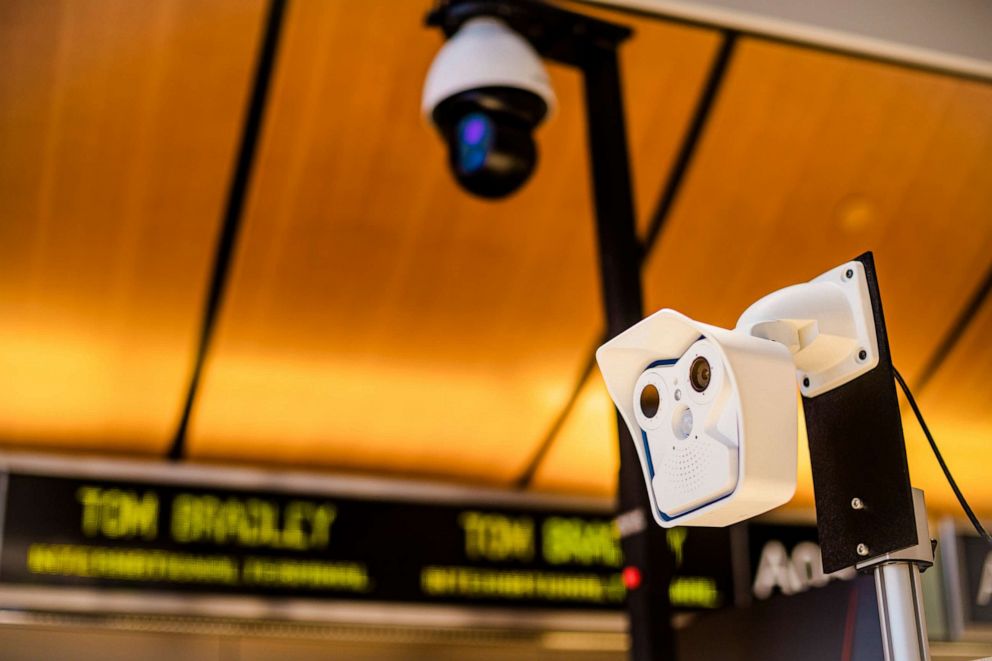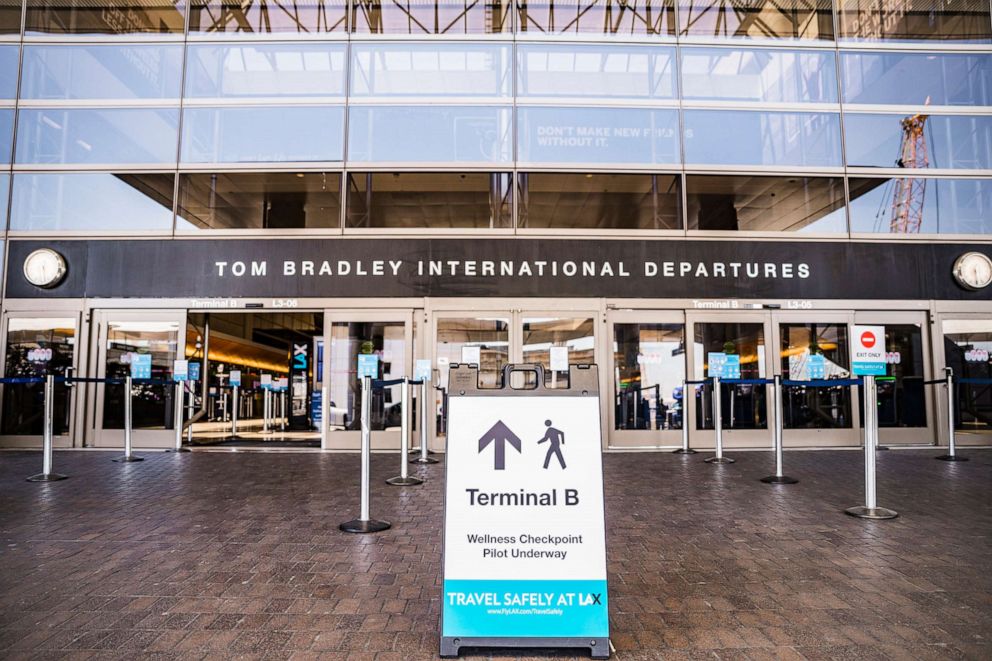LAX to conduct temperature screenings on travelers in effort to combat COVID-19
The pilot program is the first of its kind in the United States.
A new screening procedure will monitor temperatures of passengers traveling to and from Los Angeles International Airport (LAX), making the program the first of its kind in the United States.
LAX launched the Terminal Wellness Project -- a new pilot program that utilizes three types of thermal camera technology to screen arriving and departing passengers at certain locations.

"These different types of technologies will be able to identify in groups of people as opposed to one-on-one individually what their temperature is, and identify those passengers who have an enhanced body temperature," Justin Erbacci, interim CEO of LAX said in an interview with Gio Benitez, ABC News transportation correspondent.
If a camera reveals a passenger has a temperature of 100.4 degrees or higher, they will be asked to undergo a second screening. However, should a second screening show their temperature is still above the limit, that passenger won’t be told they can’t fly.
"We will not prevent anyone from flying," Erbacci said. "But during this program, we're just testing the technology and we're testing the processes to see how this works."
In addition, travelers on arriving international flights who have a high temperature may be referred to Centers for Disease Control and Prevention (CDC) staff on site.
While these temperature checks are currently voluntary, Erbacci said LAX is considering making the technology permanent.
"If this pilot is successful, as we believe it will be, then what we would do next is begin working with the airlines to understand how we handle people who do have elevated temperatures such that we would then work out how to stop them from either entering the terminal or to prevent them from getting on the airplane," Erbacci said.

While LAX is the first U.S. airport to deploy this technology, similar programs are already in place at airports across the globe.
Heathrow International Airport in London conducted a similar trial in May that utilized thermal camera technology to take passengers' temperatures.
Incheon International Airport in Seoul began conducting temperature screenings for all departing passengers in early March.
Recently, the Canadian government announced it would require temperature screenings for all international and domestic passengers.
Frontier Airlines is currently the only U.S. airline that has implemented temperature screenings for all passengers and employees prior to boarding.
Tune into ABC at 1 p.m. ET and ABC News Live at 4 p.m. ET every weekday for special coverage of the novel coronavirus with the full ABC News team, including the latest news, context and analysis.
Starting June 1, the carrier said it will use touchless thermometers and those with a temperature 100.4 degrees or higher will be denied boarding in an attempt to limit the spread of COVID-19. Frontier said if a passenger's temperature exceeds that number and flight departure time allows, customers will be "given time to rest" and receive a second temperature check.
Major U.S. airlines called for the Transportation Security Administration (TSA) to conduct temperature screenings at U.S. airports in May in order to "add an extra layer of protection" for both passengers and employees, according to Airlines for America (A4A), an industry trade organization.
TSA said that "no decision has been made regarding specific health screening measures at airports," and that it continues to "rely on the health expertise of HHS and the CDC."
Democratic lawmakers have expressed doubts that the administration has the power to require temperature checks.
"I cannot find any law that gives TSA the authority to perform temperature checks as reported," Chairman of the Committee on Homeland Security Bennie Thompson said. "The health and safety of our Transportation Security Officers have already been put at great risk the past few months -- the Administration should not put these frontline workers in further danger in order to provide passengers a potential false sense of safety."
ABC News' Sam Sweeney and Nate Luna contributed to this report
What to know about coronavirus:
- How it started and how to protect yourself: coronavirus explained
- What to do if you have symptoms: coronavirus symptoms
- Tracking the spread in the US and Worldwide: coronavirus map




